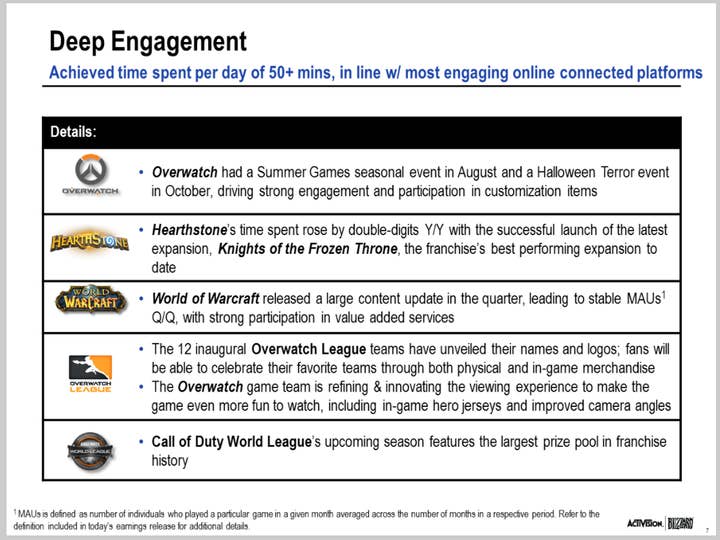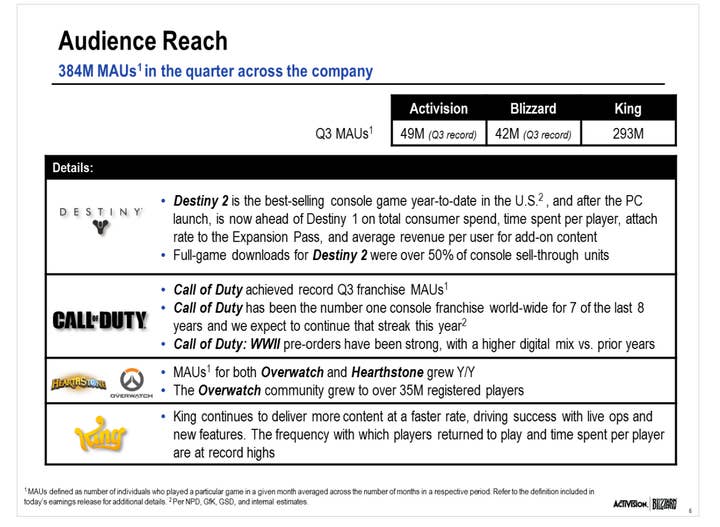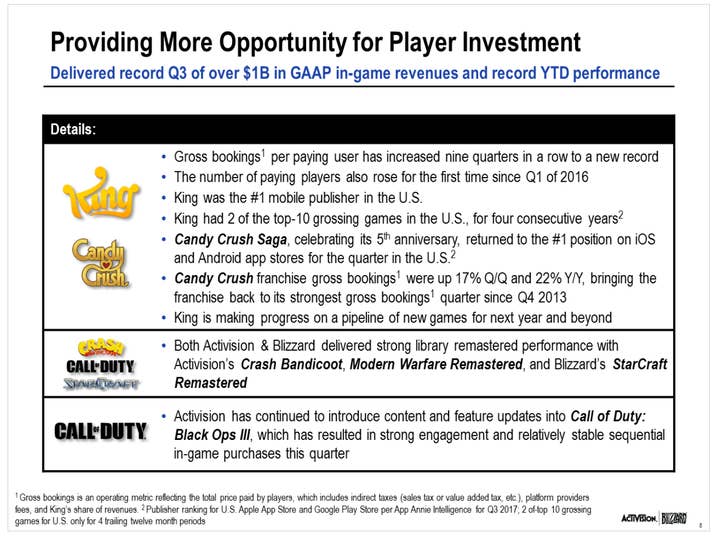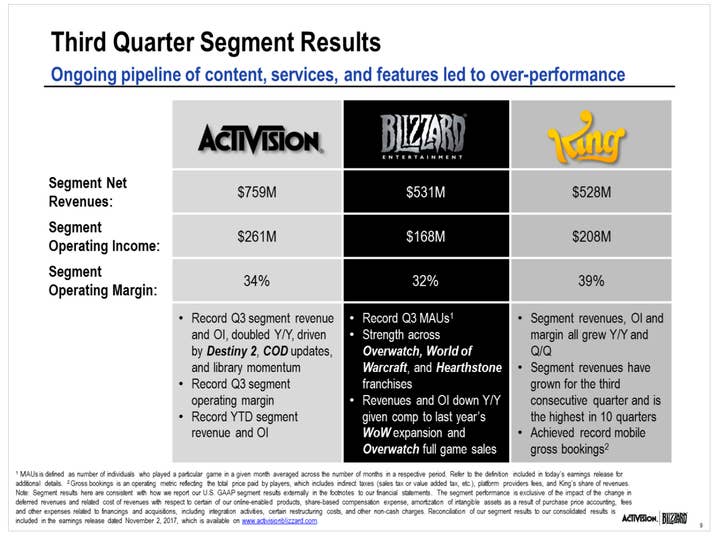Destiny 2 and digital drive Activision Blizzard growth
More than half of Destiny 2 copies sold on consoles were purchased digitally as Activision side carries the company's quarter [UPDATE: Over $1bn in-game revenues]
Some quarters, it's the Blizzard part of Activision Blizzard that brings home the bacon. Last quarter, it was Activision's turn.
Activision Blizzard today reported its financial results for the fiscal third quarter (three months ended September 30), and Activision's launch of Destiny 2 during the period helped propel the publisher to a modest 3% growth in year-over-year revenues to $1.62 billion. At the same time, net income was down 6% to $188 million.
Activision accounted for $759 million in net revenues for the quarter, or 42% of the company's total, while Blizzard and King split the remaining amount almost evenly, 29% each. That's a striking turnaround from the same quarter last year, when Activision generated less than half that amount ($377 million), just 24% of the company's total, while Blizzard was the star performer with 47% of the revenue ($729 million). King's contribution was 29% of revenues in both quarters.
Activision Blizzard's numbers also called attention to the publisher's increasing shift to digitally derived revenues. For the first nine months of the year, 81% of Activision Blizzard revenues came from digital sources, while retail accounted for just 14% of the total. At the same time last year, the numbers were 74% digital and 22% retail. (The remaining revenues came from the company's studios and distribution businesses, or its Major League Gaming division.)
More than half of the Destiny 2 console copies sold through to consumers were digitally distributed, an all-time high for the company. Activision Blizzard also said the game is outperforming the original Destiny on time spent per player and expansion pass attach rate, and with the launch of the PC version, has surpassed the original Destiny in consumer spend. The digital focus extends to other aspects of the Activision catalog, as the company said Call of Duty: WWII digital preorders are making up a larger percentage of the game's reservations than for previous installments in the franchise.
On the Blizzard side of things, revenues were down 27% year-over-year to $531 million, but the company touted its engagement metrics, saying Overwatch and Hearthstone monthly active users grew year-over-year for the quarter. Additionally, Overwatch now boasts 35 million registered users, up from 30 million players in May. As for the venerable World of Warcraft, Activision Blizzard attributed a new content update for the long-running MMO as providing for "stable" monthly active users quarter-over-quarter.
Looking to the holiday quarter, Activision Blizzard continued its tradition of conservative forecasting, setting a target of $1.7 billion in revenues and $0.10 in earnings per share. During last year's fourth quarter, Activision Blizzard brought in revenues of $2.01 billion and EPS of $0.33 compared to a forecast of $1.86 billion and EPS of $0.05.
Update: On the earnings call following the fiscal release, Activision executives stressed the importance of the company's growing engagement and the continued growth of in-game revenues, which topped $1 billion during the quarter. A large chunk of that came from King's prioritizing Candy Crush and live ops. King's Riccardo Zacconi said that his team is "working really hard" on prototyping and developing new games for the future to extend the brand's reach so it's not wholly dependent on Candy Crush.
Importantly, Activision also enjoyed a new record for engagement with time spent per user averaging over 50 minutes each day. CFO Spencer Neumann added that while his company is thrilled with the digital growth on Destiny 2 (it yields about $10 more in profit per unit), Activision still sees value in the retail sector. In fact, with Call of Duty: WWII seeing "anticipation at a fever pitch" according to Eric Hirshberg, the Call of Duty franchise has always been more mass market than Destiny, and the executive team stressed that the more mass market a title is the more important the retail mix is going to be.
Here are some of the key slides from the publisher's presentation:




Additional reporting by James Brightman
